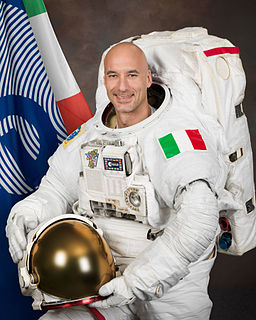A Quote by Neil deGrasse Tyson
(Space programs are) a force operating on educational pipelines that stimulate the formation of scientists, technologists, engineers and mathematicians... They're the ones that make tomorrow come. The foundations of economies... issue forth from investments we make in science and technology.
Related Quotes
To make any future that we dreamt up real requires creative scientists, engineers, and technologists to make it happen. If people are not within your midst who dream about tomorrow - with the capacity to bring tomorrow into the present - then the country might as well just recede back into the cave because that's where we're headed.
When NASA makes discoveries they are profound and they make headlines, everyone takes notice. It drives dialogue and, today, it would drive the blogosphere. It would drive the projects the kids do in school. So you wouldn't even need programs to try and stimulate curiosity. You wouldn't need programs to try to convince people that science literacy is good. Because they're going to want to participate on this epic adventure that we call space exploration.
Without investments in research and science that will create the next Apple, create the next new innovation that will sell products around the world, we will lose. If we're not training engineers to make sure that they are equipped here in this country, then companies won't come here. Those investments are what's going to help to make sure that we continue to lead this world economy not just next year, but 10 years from now, 50 years from now, a hundred years from now.
I don't think any administration, when they come in, thinks that their job is to tell the scientists what the science looks like or to be quiet about the science. Scientists need to remain true and not allow science to be politicized. Scientists are not politicians, and no politician should consider themselves to be a scientist.
Most science fiction is about tomorrow, a tomorrow brought to you by innovations in science and technology, and China was worried that if they just have everybody learning what is, they're not going to be in a position to invent a tomorrow because their brain isn't even wired to go in that direction.
I started my career as a journalist, writing about science and technology for 'Business Week' magazine. Then I decided to make a career shift. I went to graduate school in computer science, and I began developing educational technologies - in particular, technologies to engage children in creative learning experiences.
If we want to make the best products, we also have to invest in the best ideas... Every dollar we invested to map the human genome returned $140 to our economy... Today, our scientists are mapping the human brain to unlock the answers to Alzheimer's... Now is not the time to gut these job-creating investments in science and innovation. Now is the time to reach a level of research and development not seen since the height of the Space Race.































